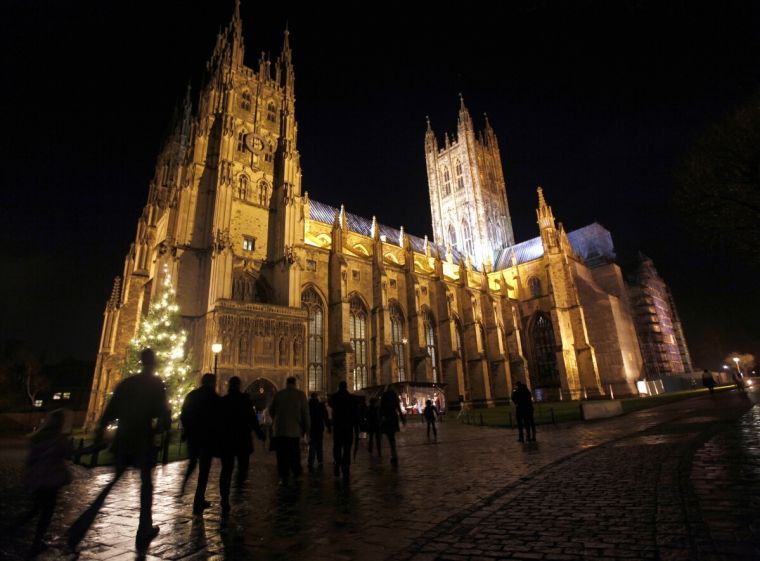The UK Should Be Proud Of Its Christian Heritage – I Don't Need A Petition To Tell Me

There's a petition doing the rounds which seeks to, "uphold the UK's Christian heritage." That's something we can all get behind, right? Well, not so fast...
Petitions, campaigns, law suits and much more besides have been tried by various groups of conservative British Christians. They've formed pressure groups, held rallies and become pretty social media-savvy. The basic argument they promote is that Britain is a Christian country, yet the presence of Muslims and gay people in the country has threatened that.
They perceive a culture bending over backwards to accommodate those minorities while at the same time muzzling traditional Christian beliefs.
The problem I see is that they have got the wrong end of the stick. For a start, there was never a time when the country was uniformly "Christian".
Sure, more people used to profess to be Christians and more people used to be in church, but there have always been some for whom that was merely lip service. While of course it is true that the legal and ethical code of the UK was based on Judeo-Christian values, it's not immediately clear that things are "getting worse".
The tone of the petition, however, suggests things certainly are getting worse. While there may be ways in which this is true, it's far too simplistic a picture.
More than this, though, there's another serious flaw in the argument.
Christian values come about when a nation understands the true, holistic nature of the Gospel.
Christian values become embodied when a large and influential enough group of people come to realise the importance of acting in accordance with their beliefs.
It's often been observed that the zeal of the evangelical social reformers of the 19th century wouldn't have been possible had it not been for the groundwork laid by the evangelism of Wesley and Whitfield. Similarly, any movement today which seeks to engender Christian values will require a certain number of people committed to those values, before those values become the default of a society.
Petitions can't achieve that. The best they can hope to do is to call attention to an issue. On occasion, that's a valid thing to do, and short of other options, many important campaigns have used petitions effectively.
The petition in question says: "With growing support for multiculturalism and sexual diversity, the last years have seen increasing restrictions imposed on Christians where affirming and standing on doctrines laid down in the Bible. Indeed, pressure is now being exerted by non-believers for modernization of the Bible, in order to make it compatible with changing attitudes."
It carries on in this way, suggesting that Christians don't have freedom of expression or at the very least that it's under threat.
Christian belief did lead to the emergence of concepts of human dignity, freedom and equality before the law. Christianity ensured that we respect the rights and conscience of individuals. In 21st Century Britain, that means having respect for those who differ from us. That means the 41 per cent of people who told the last census they weren't Christians, and the roughly nine in ten who won't be in church this Sunday.
UK law attempts to make accommodation for different beliefs and practices while recognising the basic Christian emphasis on the equality of individuals. There have probably been occasions where the authorities were too zealous in imposing a reductive vision of equality which has disadvantaged Christians.
The answer here isn't petitions. The answer is to get involved in the system, rather than standing piously to one side. Politics, journalism, law, education and many other fields in the public square are open to Christians and remain so. We should seize the chance to get involved and engage. Petitions don't help us get involved in the debate very well. Rather they demarcate "them" from "us".
The country has always benefitted from the commitment of selfless Christians living out their Christian values in public.
Let's carry on doing that and leave the petitions to those in other parts of the world who are genuinely restricted because of their faith.











